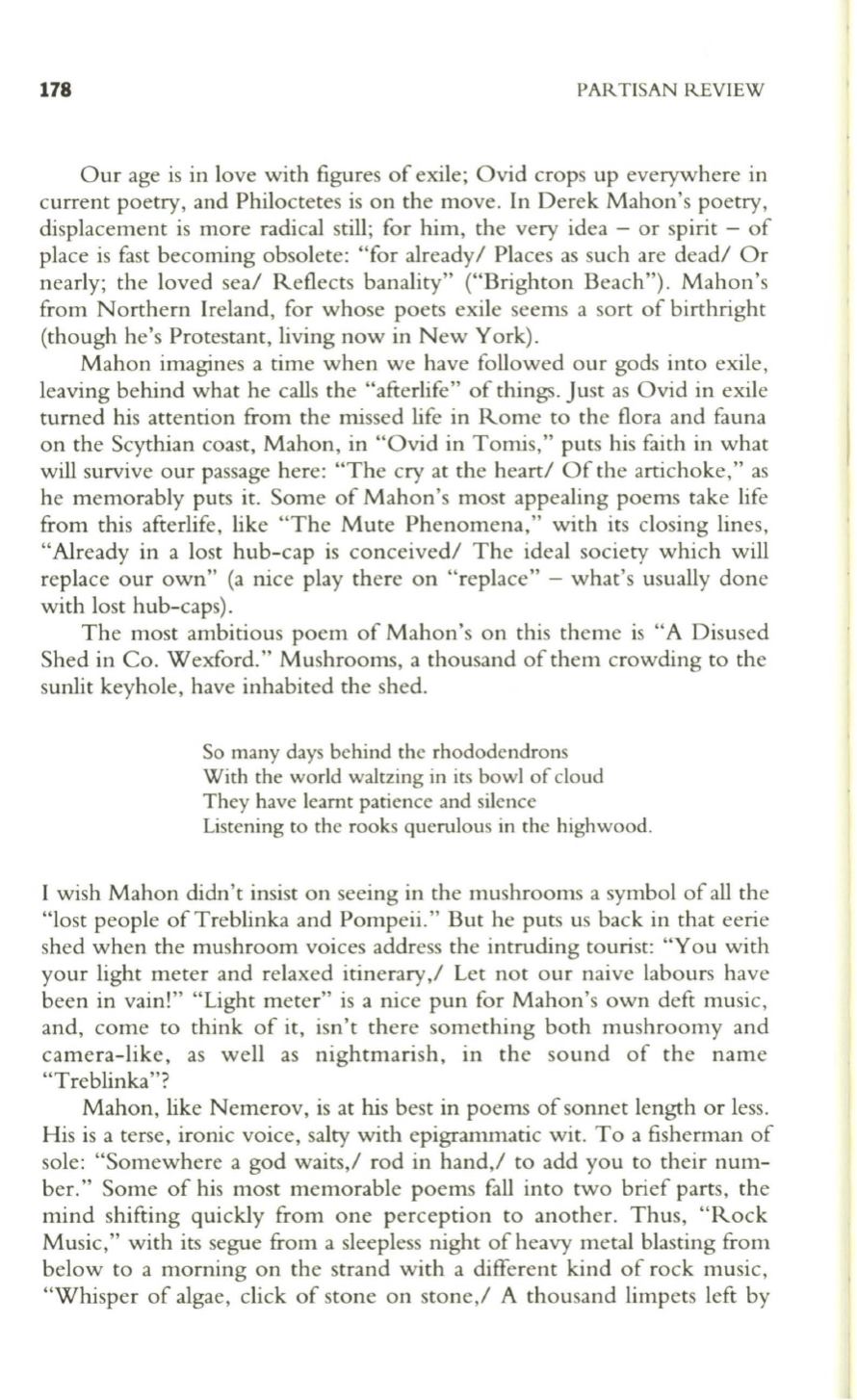
178
PARTISAN REVIEW
Our age is in love with figures of exile; Ovid crops up everywhere in
current poetry, and Philoctetes is on the move. In Derek Mahon's poetry,
displacement is more radical still; for him, the very idea - or spirit - of
place is fast becoming obsolete: "for already/ Places as such are dead/ Or
nearly; the loved sea/ Reflects banality" ("Brighton Beach"). Mahon's
from Northern Ireland, for whose poets exile seems a sort of birthright
(though he's Protestant, living now in New York).
Mahon imagines a time when we have followed our gods into exile,
leaving behind what he calls the "afterlife" of things. Just as Ovid in exile
turned his attention from the missed life in Rome to the flora and fauna
on the Scythian coast, Mahon, in "Ovid in Tomis," puts his faith in what
will survive our passage here: "The cry at the heart/ Of the artichoke," as
he memorably puts it. Some of Mahon's most appealing poems take life
from this afterlife, like "The Mute Phenomena," with its closing lines,
"Already in a lost hub-cap is conceived/ The ideal society which will
replace our own" (a nice play there on "replace" - what's usually done
with lost hub-caps).
The most ambitious poem of Mahon's on this theme is "A Disused
Shed in Co. Wexford." Mushrooms, a thousand of them crowding to the
sunlit keyhole, have inhabited the shed.
So many days behind the rhododendrons
With the world waltzing in its bowl of cloud
They have learnt patience and silence
Listening to the rooks querulous in the highwood.
I wish Mahon didn't insist on seeing in the mushrooms a symbol of
all
the
"lost people of Treblinka and Pompeii ." But he puts us back in that eerie
shed when the mushroom voices address the intruding tourist: "You with
your light meter and relaxed itinerary,/ Let not our naive labours have
been in vain!" "Light meter" is a nice pun for Mahon's own deft music,
and, come to think of it, isn't there something both mushroomy and
camera-like, as well as nightmarish, in the sound of the name
"Treblinka"?
Mahon, like Nemerov, is at his best in poems of sonnet length or less.
His is a terse, ironic voice, salty with epigrammatic wit. To a fisherman of
sole: "Somewhere a god waits,/ rod in hand,/ to add you to their num–
ber." Some of his most memorable poems fall into two brief parts, the
mind shifting quickly from one perception to another. Thus, "Rock
Music," with its segue from a sleepless night of heavy metal blasting from
below to a morning on the strand with a different kind of rock music,
"Whisper of algae, click of stone on stone,/ A thousand limpets left by


